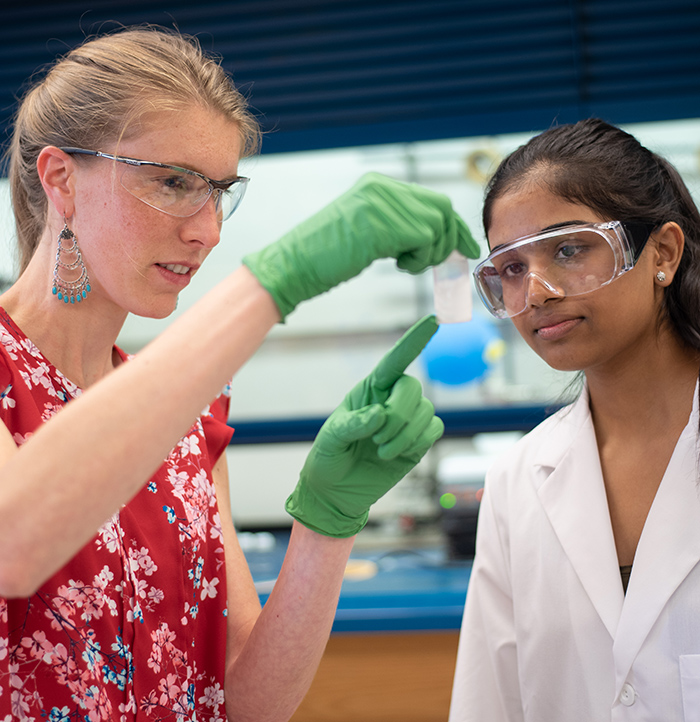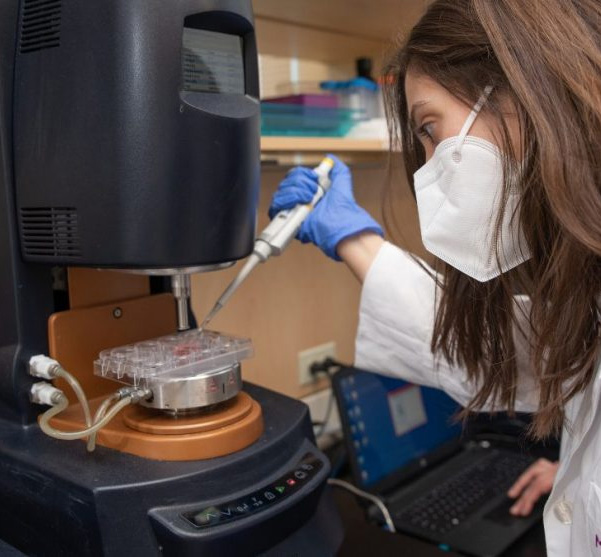Forensic Science, housed in the Department of Chemistry, is an interdisciplinary program offering significant coursework in chemistry, biology, physics, math, law, psychology, and even photography.
Our laboratories feature state-of-the-art instrumentation – equipment universally found in modern forensic laboratories, industrial, and institutional facilities. Advanced laboratory classes are limited in size to maximize interaction with the professor and to ensure proficiency in the presented theories and techniques.
Why Forensic Science?
Forensic science is the application of science to investigations pertaining to the legal system. Forensic scientists apply principles and techniques of various sciences to the examination and comparison of biological evidence, trace evidence, impression evidence, drugs, and firearms.
The profession requires critical thinking, communication skills, the application of natural and physical sciences to legal issues, and ethical responsibility. This program provides students with a strong foundation in physical and natural sciences and acquaints them with various relevant aspects of the legal system.
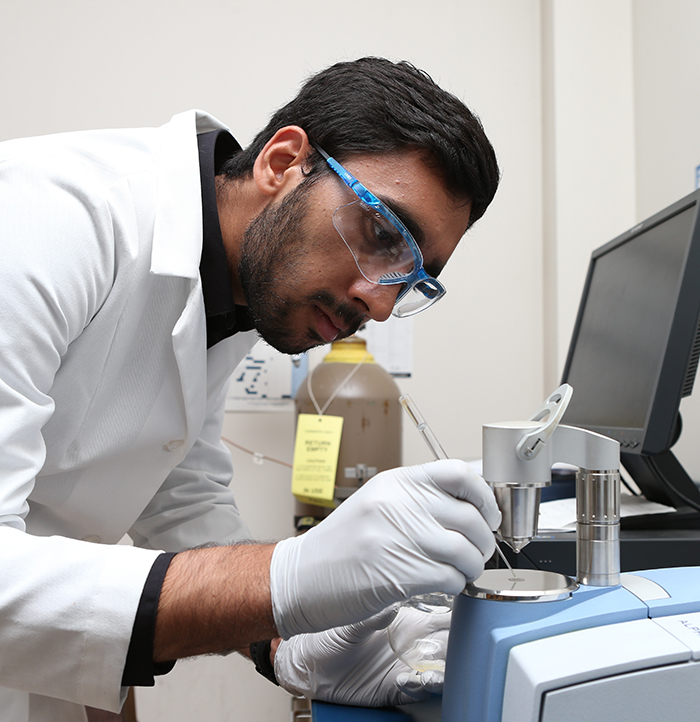
Our Programs
We offer both a major and a minor in forensic science.
About the BS in Forensic Science
Students who graduate with a Bachelor of Science in Forensic Science pursue careers such as forensic science technician, crime scene investigators, and evidence collection specialist.
This program also prepares students for medical school, dental school, graduate studies in forensic science, and chemistry.
Learn more about the minor in Forensic Science.
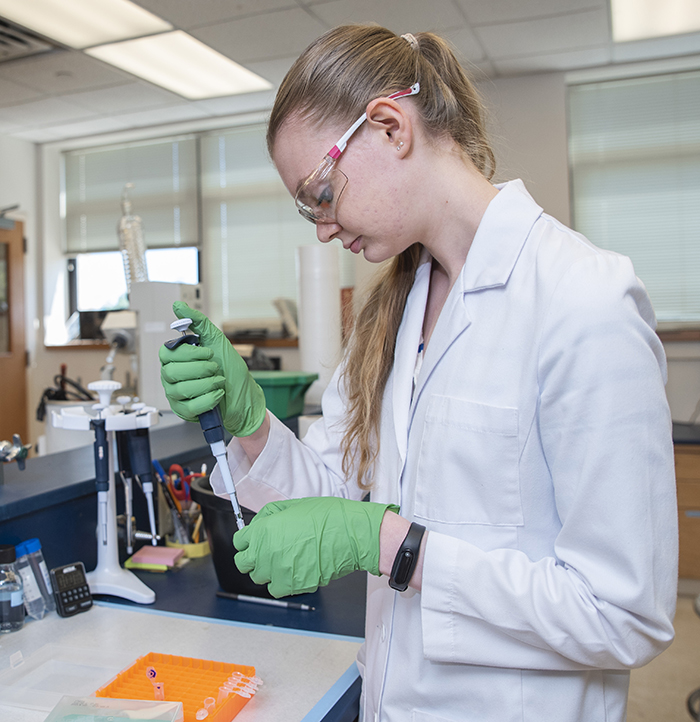
The Student Experience
Research opportunities, internships, and other types of experiential learning such as peer teaching are at the core of our tight-knit and collegial Department of Chemistry and the forensic science program.
Internships
Places where our students have interned include:
- Applied Forensics, LLC
- Bio-Botanica
- Cold Spring Harbor Laboratories;
- FBI
- Garden State Labs
- Medical Examiner's Office of Suffolk County
- Rhode Island Department of Health
- Suffolk County Crime Lab
Research Opportunities
Hofstra students have also been accepted to participate in highly competitive National Science Foundation-funded REU (Research Experiences for Undergraduates) programs hosted by universities worldwide.
In addition, sophomore and junior chemistry majors may apply for the Dr. Bruce and Doris Lister Endowed Fellowship in Chemistry Research, which provides a $4,000 stipend and grant to cover half of their on-campus housing costs, so they may participate in a faculty-mentored research program over the summer.
Student Organizations
CSI Hofstra is for forensic science majors and enthusiasts. Members can attend the annual meeting of the Northeastern Association of Forensic Scientists. Activities include viewing documentaries, television shows, and movies that deal with forensic analysis, murder mystery dinners, and escape rooms.
Hofstra’s chapter of the American Chemical Society Student Members program (SMACS) helps students interested in chemical science fields prepare for future careers. SMACS regularly hosts guest speakers from a variety of laboratories, industries, and graduate schools. The group is also active in the community and organizes hands-on demonstrations for children from local school districts.
In the Classroom
Learn from the Experts
Our professors are working professionals who bring decades of experience in courtrooms and at crime scenes into the classroom. Among our faculty, you’ll find forensic scientists and expert analysts from the New York City Medical Examiner’s Office, and the crime labs for the New York Police Department, and the Suffolk and Nassau County Police departments. They are document examiners, ballistics and firearms experts, arson analysts, crime scene investigators, forensic pharmacologists, microscopists and trace analysts, accident scene reconstructionists, and explosive experts.
The forensic science program also draws from the teaching talents of other programs and departments throughout the University, such as chemistry, biochemistry, biology, law, and criminology.
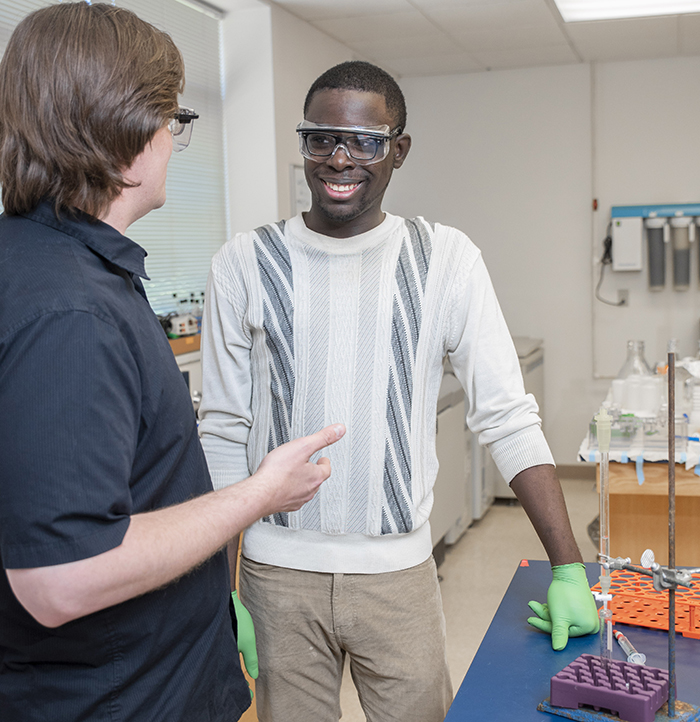
More about us
Outcomes
A forensic science degree from Hofstra prepares students for a wide range of careers in the public and private sector, including law enforcement agencies, government labs, and private companies that specialize in varying types of forensic analysis.
Among recent forensic science alumni, approximately one third found employment in law enforcement, another third in the analytical sciences, and remaining alumni pursued graduate studies, pharmacy school, or found work in crime labs. More on alumni outcomes
Recent alumni have reported working at:
- Brigham And Women's Hospital
- Federal Bureau Investigation (FBI)
- Feinstein Institute for Medical Research
- Garden State Labs
- New York University
- Northwell Health
- NY Police Department
- NYU Langone Health
- Saladax Biomedical, Inc.
- Jackson Laboratory for Genomic Medicine
Recent alumni have reported pursuing graduate studies at:
- Albany College of Pharmacy and Health Sciences
- Dartmouth College
- Drexel University
- Johns Hopkins University
- Texas Tech University
- University of California, Los Angeles
- University of Maryland
- University of Southern California
- University of Washington, Seattle
Contact Us
Director of Forensic Science
Deborah Silva
Assistant Professor
Phone: 516-463-7153
Room 106G Berliner Hall
E-mail




